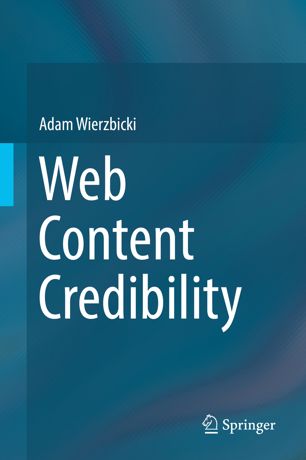

Most ebook files are in PDF format, so you can easily read them using various software such as Foxit Reader or directly on the Google Chrome browser.
Some ebook files are released by publishers in other formats such as .awz, .mobi, .epub, .fb2, etc. You may need to install specific software to read these formats on mobile/PC, such as Calibre.
Please read the tutorial at this link: https://ebookbell.com/faq
We offer FREE conversion to the popular formats you request; however, this may take some time. Therefore, right after payment, please email us, and we will try to provide the service as quickly as possible.
For some exceptional file formats or broken links (if any), please refrain from opening any disputes. Instead, email us first, and we will try to assist within a maximum of 6 hours.
EbookBell Team

4.3
88 reviewsThis book introduces readers to Web content credibility evaluation and evaluation support. It highlights empirical research and establishes a solid foundation for future research by presenting methods of supporting credibility evaluation of online content, together with publicly available datasets for reproducible experimentation, such as the Web Content Credibility Corpus.
The book is divided into six chapters. After a general introduction in Chapter 1, including a brief survey of credibility evaluation in the social sciences, Chapter 2 presents definitions of credibility and related concepts of truth and trust. Next, Chapter 3 details methods, algorithms and user interfaces for systems supporting Web content credibility evaluation. In turn, Chapter 4 takes a closer look at the credibility of social media, exemplified in sections on Twitter, Q&A systems, and Wikipedia, as well as fake news detection. In closing, Chapter 5 presents mathematical and simulation models of credibility evaluation, before a final round-up of the book is provided in Chapter 6.
Overall, the book reviews and synthesizes the current state of the art in Web content credibility evaluation support and fake news detection. It provides researchers in academia and industry with both an incentive and a basis for future research and development of Web content credibility evaluation support services.